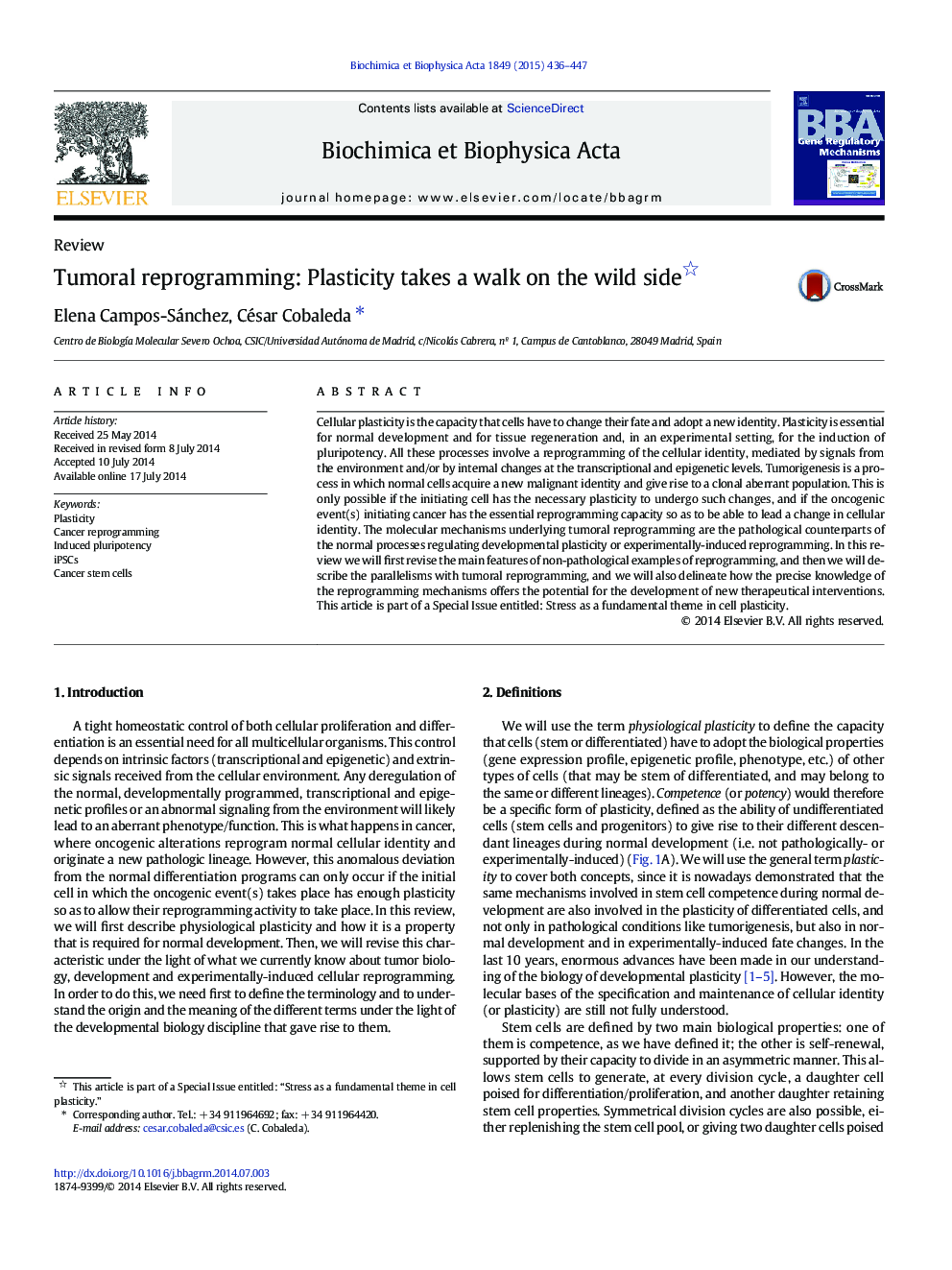| Article ID | Journal | Published Year | Pages | File Type |
|---|---|---|---|---|
| 1946419 | Biochimica et Biophysica Acta (BBA) - Gene Regulatory Mechanisms | 2015 | 12 Pages |
•Plasticity is the capacity of cells for changing their identity and becoming different cell types.•Reprogramming to pluripotency allows in vitro conversion of almost any cell into a pluripotent progenitor.•Tumorigenesis is the process of reprogramming a normal cell into a pathological one with stem cell properties.•There are many functional and conceptual parallelisms between reprogramming to pluripotency and tumoral reprogramming.•Understanding the role of plasticity and reprogramming in tumorigenesis will open new avenues for research and therapy.
Cellular plasticity is the capacity that cells have to change their fate and adopt a new identity. Plasticity is essential for normal development and for tissue regeneration and, in an experimental setting, for the induction of pluripotency. All these processes involve a reprogramming of the cellular identity, mediated by signals from the environment and/or by internal changes at the transcriptional and epigenetic levels. Tumorigenesis is a process in which normal cells acquire a new malignant identity and give rise to a clonal aberrant population. This is only possible if the initiating cell has the necessary plasticity to undergo such changes, and if the oncogenic event(s) initiating cancer has the essential reprogramming capacity so as to be able to lead a change in cellular identity. The molecular mechanisms underlying tumoral reprogramming are the pathological counterparts of the normal processes regulating developmental plasticity or experimentally-induced reprogramming. In this review we will first revise the main features of non-pathological examples of reprogramming, and then we will describe the parallelisms with tumoral reprogramming, and we will also delineate how the precise knowledge of the reprogramming mechanisms offers the potential for the development of new therapeutical interventions. This article is part of a Special Issue entitled: Stress as a fundamental theme in cell plasticity.
